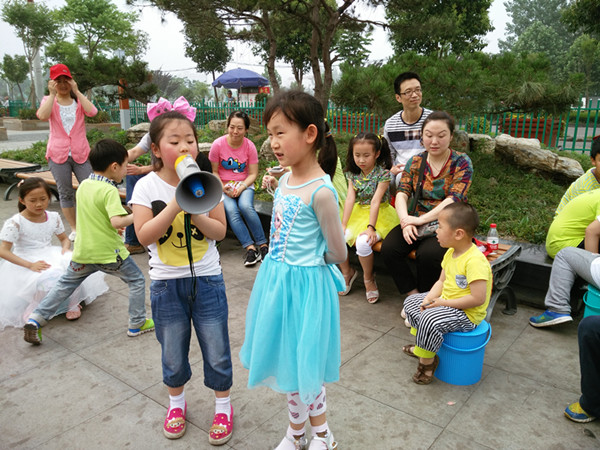Green gem fires up coal capital's transformation
By Ma Chenguang (chinadaily.com.cn) Updated: 2015-07-03 17:46
 |
|
Children play by the lakeside at South Lake Wetland Park. [Photo by Qin Dachun] |
However, he said, the mining also brought economic and social crisis: the local GDP growth rate dropped, the city’s gauged competitiveness dived ---- from 0.21 percent in 1978 to only 0.1 percent in 2008. On top of this, 17,000 hectares of land subsided and 250 villages were relocated resulting in 270,000 landless farmers.
The mining brought the city an eco crisis --- effluent hit some 19 million tons each year and coal gangue seriously polluted the air and the water. Four State-owned coalmines and 10 township-owned coalmines had to close after excessive mining, and by the end of this year nine of 11 coalmines in one area of the city will be shut down.
The city government decided in May 2001 to “transform the city to let it become stronger and residents richer,” Zhu stressed, noting that since then, money began to be allocated to the park.
Lieshan’s publicity chief Zhang Gang said the city’s largest water recreation, tourism and leisure resort also has more than 70 species of plants, 20-odd species of migratory birds, 18 kinds of fish, as well as a large number of hares and squirrels.
As it is a Saturday morning, many people are strolling on the lakeside path. Children play by the water. And in some secluded spots, lovers enjoy each other’s company.
“Right now, we can see people swimming on the west side of the lake. I used to come every day each summer for a two-hour swim,” said retired police officer Qin Longyun, adding that there is also a lakeside bathing beach, wave pool and water torrent facilities nearby.
At the south bank of the lake there is a coalmine museum.
After taking a stroll for about two hours on the lakeside path, I came back to the park gate in the north, heading for a lakeside hotel for brief lunch around 12:30 pm.
“The South Lake Wetland Park also provides us with some aquatic products, like this type of fish, and some water vegetables,” said Zhu, pointing to our dishes. “This lake is really a beautiful place".











